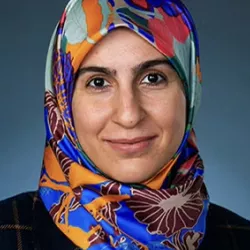Zahra Takhshid is an Associate Professor of Law at the University of Denver Sturm College of Law and the Director for the Program in Law and Emerging Technologies at DU. Before joining DU, she was the Lewis Fellow for Law Teaching and Lecturer on Law at Harvard Law School where she taught “Common Law and Privacy Torts.” Her teaching and research focus on tort law, privacy, and the legal and ethical implications of emerging technologies, with particular attention to children’s digital privacy and their evolving relationship with AI. Her scholarship at the intersection of law and technology has been recognized through multiple competitive research grants and institutional awards.
A second strand of her interest is Islamic and comparative law. Professor Takhshid is also a Faculty Associate at the Berkman Klein Center for Internet and Society at Harvard University and an invited Member of the Network of Experts for the United Nations Secretary-General’s High-Level Advisory Body on Artificial Intelligence.
Professor Takhshid’s research has been published or is forthcoming in Georgetown Law Journal, Texas Law Review, Journal of Tort Law, Cardozo Law Review, Minnesota Law Review Online, Buffalo Law Review, UCLA Journal of Islamic & Near Eastern Law, Vanderbilt Journal of Entertainment and Technology Law, among others. She has contributed to the Harvard Journal of Law and Technology Digest and Harvard Islamic Law Blog.

